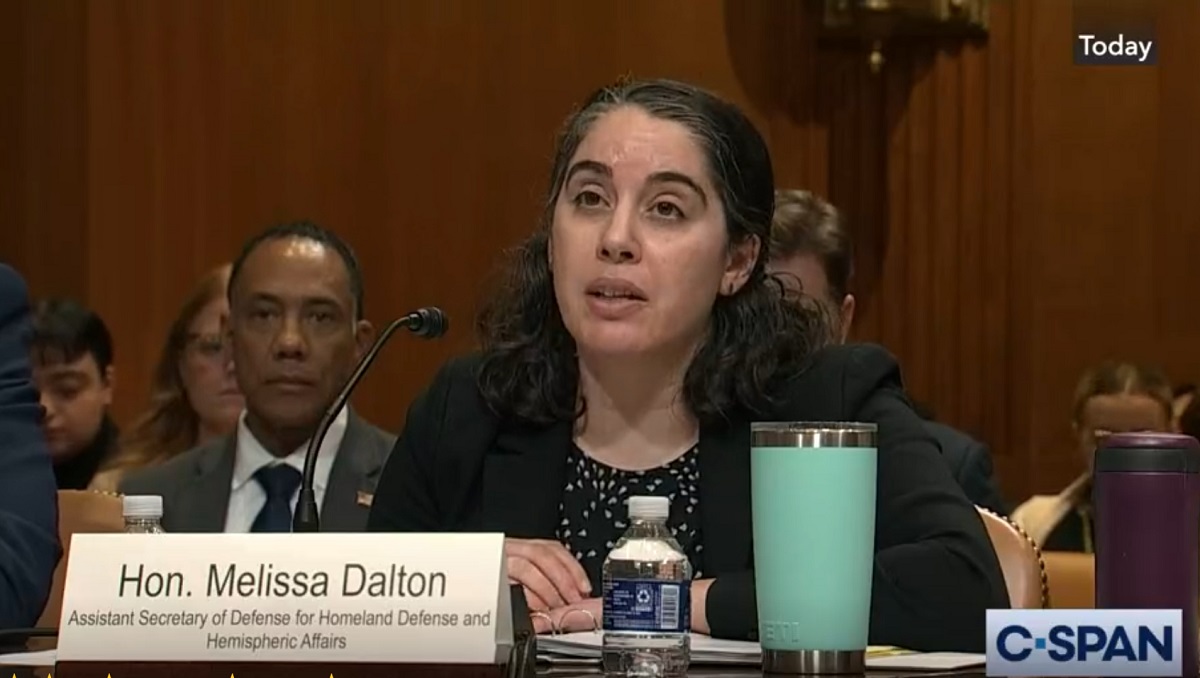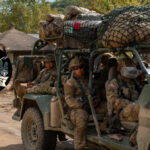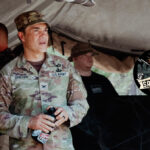
One of the benefits of being located so close to Washington, D.C., is that the U.S. Army War College has access to some of the nation’s most senior leaders. Most recently, the Honorable Melissa Dalton addressed the Homeland Defense Symposium in Carlisle and took time out of her busy schedule to join podcast editor Ron Granieri for an intriguing conversation. Sworn in as the Assistant Secretary of Defense for Homeland Defense and Hemispheric Affairs on March 4, 2022, Secretary Dalton currently performs the duties of Deputy Under Secretary of Defense for Policy. She shares how she found her way to the civil service and the challenges her office faces in pursuit of national defense priorities. Her portfolio includes Indo-Pacific Affairs, International Security Affairs, Space Policy, Special Operations Low-Intensity Conflict and Homeland Defense Hemispheric Affairs.
I would emphasize the importance of resilience and the day-to-day actions that any one of us can take to make ourselves more resilient at the individual, community, unit, departmental, and country level matters because if we are demonstrating that resilience day-to-day through repeatable actions…that is sending a message principally to the PRC that today is not the day to test us.
Podcast: Download
Subscribe: Apple Podcasts | Spotify | Amazon Music | Android | Pandora | iHeartRadio | Blubrry | Podchaser | Podcast Index | TuneIn | Deezer | Youtube Music | RSS | Subscribe to A Better Peace: The War Room Podcast
Melissa Dalton is Performing the Duties of Deputy Under Secretary of Defense for Policy. She was sworn in as the Assistant Secretary of Defense for Homeland Defense and Hemispheric Affairs on March 4, 2022. She is responsible for advising the Secretary of Defense and other senior defense leaders on defense continuity and mission assurance; homeland defense and defense support of civil authorities; Arctic and global resilience; and U.S. defense and security policy for Canada, Mexico, Central America, the Caribbean, and South America.
Ron Granieri is Professor of History at the U.S. Army War College and the Editor of A BETTER PEACE.
The views expressed in this presentation are those of the speakers and do not necessarily reflect those of the U.S. Army War College, U.S. Army, or Department of Defense.
Photo Description: The Honorable Melissa Dalton, Assistant Secretary of Defense for Homeland Defense and Hemispheric Affairs addresses the Senate Appropriations Subcommittee on Defense, February 9, 2023
Photo Credit: Courtesy of C-SPAN





Regarding resilience, is assimilation — or is integration/multiculturalism — post-the Old Cold War, the best strategy/the best way to go? As to this such question, consider that:
a. During the Old Cold War, assimilation seems to have been adopted as the best strategy/as the best way to go; this, because assimilation was thought to “allow us to forge a national people that could meet the external Communist enemy with a united front, thereby denying the Communist enemy with an opportunity to exploit potentially dangerous rifts with the Nation.” Whereas:
b. Post the Old Cold War — and with the Communist enemy now defeated (and, thus, with the strategic environment now being entirely different?) — integration/multiculturalism seems to have been adopted as the best strategy/as the best way to go; this, because — while, during the Old Cold War, integration (and, thus multiculturalism?) might indeed have been “a liability that had the potential to weaken or even fracture the Nation,” it (integration/multiculturalism) was, post-the Old Cold War, “seen as an asset to be that must be exploited for the advantages it could bring to American businesses in their international transactions.”
(As to the quoted items above, see beginning at about the middle of Page 703, and on to the top of Page 704, of the Catholic University of America, Columbus School of Law paper “Moral Communities or a Market State: The Supreme Court’s Vision of the Police Power in the Age of Globalization” by Antonio F. Perez and Robert J. Delahunty.)
Thus — re: resilience post-the Old Cold War and including to the present day —
a. While integration/multiculturalism was formally adopted post-the Old Cold War — and integration formally and unceremoniously discarded at this exact same time — this, indeed,
b. Is still thought to be/is still thought to have been the proper and correct way to go; this, given that the post-Cold War international environment is so markedly different from that of the Old Cold War?
Question — based on my comment immediately above:
Re: their “resilience,” do our opponents/our competitors/our enemies — today — see the current international environment in much the same way that we do? And have they, accordingly,
a. Also discarded such things as assimilation? And:
b. Also embraced such things as integration/multiculturalism?
Error:
Subparagraph “a” — at my initial comment above — this should read:
a. While integration/multiculturalism was formally adopted post-the Old Cold War — and assimilation formally and unceremoniously discarded at this exact same time — this, indeed
Apologies.